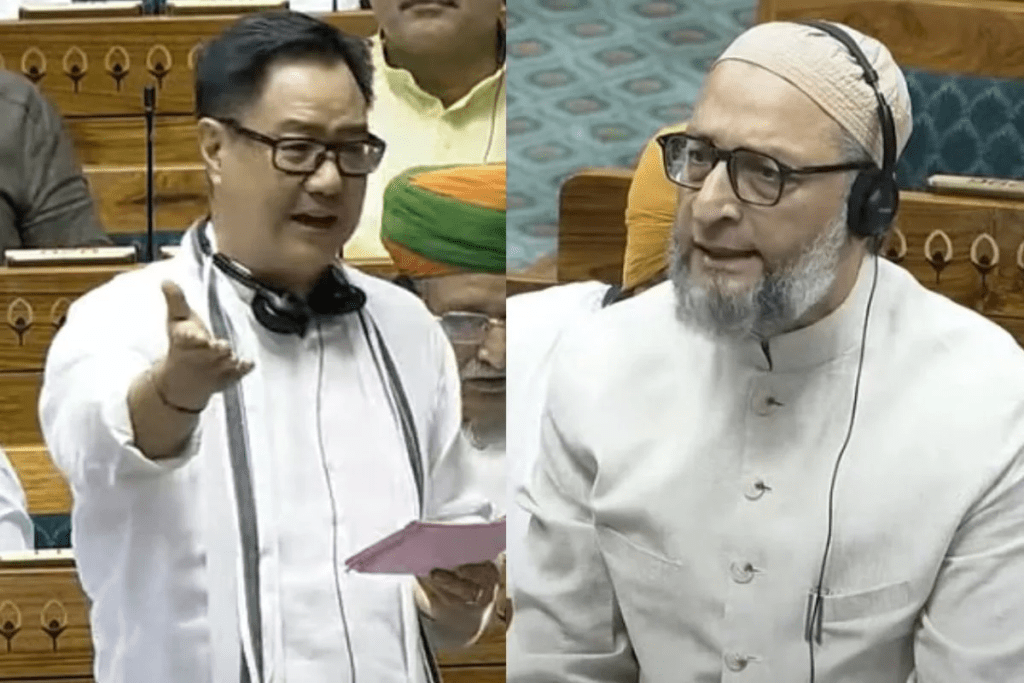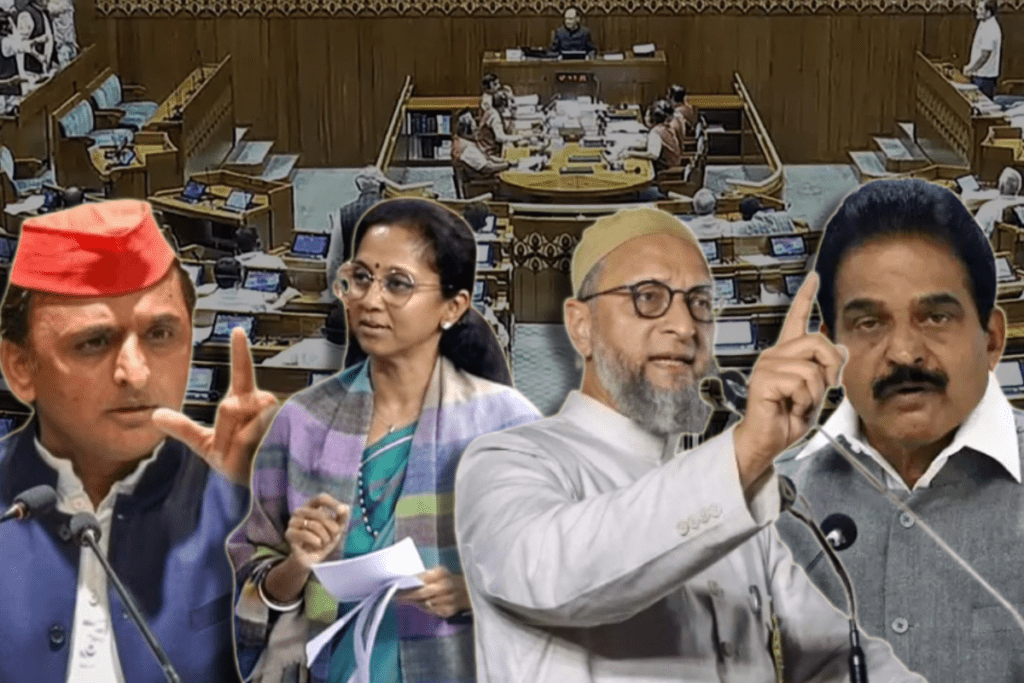Waqf Amendment Bill: 14 changes and shock to the opposition… Know who said what

The JPC formed on the Waqf Amendment Bill held a meeting on Monday, which discussed the bill clause-wise. The committee’s draft report will be sent to all the members late tonight or tomorrow. The committee’s next meeting will be held on Wednesday, in which the committee’s draft report will be accepted.
The Joint Parliamentary Committee formed on the Waqf Amendment Bill held a meeting on Monday. The bill was discussed clause-wise. All the amendments brought by the opposition in the meeting were rejected by the majority.
The amendments brought by the members of the ruling party were accepted. The opposition had brought proposals to change 44 clauses of the bill, which were rejected after voting. On the other hand, the ruling party had brought an amendment proposal for 14 changes in 14 clauses of the bill, which was accepted after voting. 16 votes were cast in support of the ruling party’s amendment and 10 against it.
ALSO READ: Maroon Color Sadiya Gets Amazing Views
It is worth mentioning that more than 450 amendment notices were given by the members of the ruling party and the opposition. Now by late tonight or tomorrow, the draft report of the committee will be sent to all the members so that they can read it and give any dissent note to include it in the report. So far, the report is more than 500 pages long; the number of pages will increase after the dissent note.
The next meeting of the committee will be held on Wednesday, in which the draft report of the committee will be accepted. The report of the committee will be submitted to the Lok Sabha Speaker on January 31. After the Speaker’s consent, it will be presented in the Parliament.

If the amendments accepted today become law after being passed by the Parliament, then…
1. In the earlier bill, the right to determine whether a property is a Waqf or not was given to the district collector, but the committee has recommended changes to it. Now instead of the Collector, an officer nominated by the State Government will decide it.
2. The definition of waqf by user has been amended. If there is any Waqf property registered before this bill’s implementation, then it will remain a Waqf property. That property may be used as Waqf, but if it is disputed in whole or in part or is a government property, then it will not be considered a Waqf.
3. There was a provision in the bill that there will be two non-Muslim members in the State Waqf Board and Central Waqf Council. Now, by making changes, ex-officio members have been kept out of this. This means that it will be mandatory for two of the nominated members to be non-Muslims. That means now more than two members can also be non-Muslims. That means if any of the ex-officio members is a non-Muslim, then he will not be counted among the non-Muslims. In this way, there can be a maximum of four non-Muslim members.
4. The Chairman and Joint Secretary are ex-officio members. If any of these two is a non-Muslim, then it will not make a difference. It will be mandatory to have two non-Muslims among the nominated members.
5. The new law will not be applicable retrospectively provided that the Waqf property is registered. That is, the registered Waqf properties will not be affected, but the future of those that are not registered will be decided according to the standards set in the bill. Earlier in the bill, it was that whoever donates Waqf property should be following the Muslim religion for five years.
6. Now the definition of practising Muslim has been changed to that whoever has been following the Muslim religion for five years should also be demonstrative that he has been a practicing & demonstrative Muslim for five years. That is, it has to be proved that he has been offering Namaaz, etc. for five years.

Changes are being made to grab Waqf properties
However, Congress MP and JPC member Imran Masood said that 90 percent of Waqf properties are not registered, so this change is being made in the law to grab Waqf properties. Also, on the inclusion of non-Muslims in the Waqf Board, Masood said that if they are also descendants of Lord Ram, then why were they not included in the Shri Ram Temple Trust?
Opposition MPs also raised questions about the definition of practicing Islam. They said that how can someone else decide whether someone is a Muslim or not? However, the opposition today also accused the chairman of the committee of running the committee’s proceedings in a dictatorial manner, not giving members a chance to speak, and obeying the ruling party. On Friday, 10 members of the committee were suspended from the committee for a day for indecent conduct.
The Waqf Amendment Bill was introduced in 2024. It was brought by the government by making 44 amendments to the 1995 bill. After this, it was sent to the JPC. Where those amendments were discussed. 44 amendments were brought by the opposition, but each of their amendments got 10 votes in favor while 16 votes were cast against it. Therefore, all 44 amendments of the opposition were repealed.
14 amendments were given by the ruling party. All of them were passed. The report will be sent to all the members by late tonight or tomorrow. The report will have to be accepted by January 29. If the opposition gives its dissent note, it will also be made a part of the report. So far, the report is about 500 pages long.



